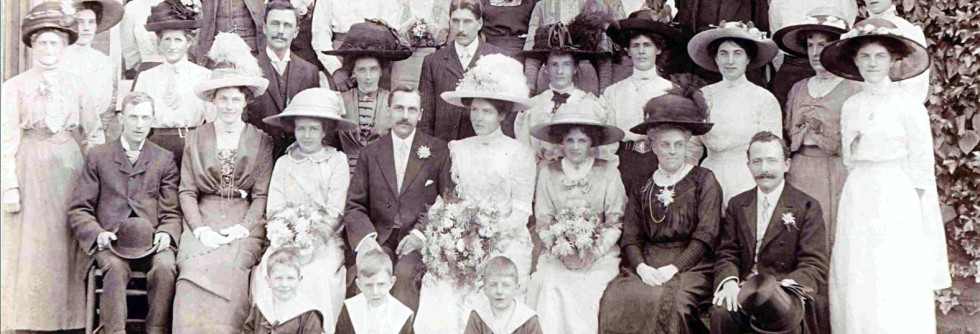
Elizabeth Clarke: Teething Death
Knowing that the infant mortality rate was higher in the nineteenth century than it is now does not make the discovery of a child’s death any easier. I am curious as to what my ancestors’ children died of, and I have previously blogged about 4-year-old Agnes Owen, who died from measles.
Elizabeth Clarke was born on 10 March 1866 in Palgrave, Suffolk.1 She was one of my grandfather’s older siblings, and she was the fourth child born to Benjamin Clarke, an agricultural labourer, and Mary Ann Warby Hunt. The couple had their daughter, Elizabeth, baptised at the parish church of Palgrave when she was about one month old, on 8 April 1866.… Continue reading




 Have you discovered a gardener in your family? Perhaps, like me, you have come across one or more ancestors noted in the census records as gardeners, horticulturalists, or nurserymen. Some, like
Have you discovered a gardener in your family? Perhaps, like me, you have come across one or more ancestors noted in the census records as gardeners, horticulturalists, or nurserymen. Some, like 
 Eighty-four years ago today, on 4 September 1932, great-uncle Walter Clarke died in Palgrave, Suffolk, England at the age of 71. He was a public-spirited man, and his death was therefore felt not only by family, but by his community as well. The Diss Express for 9 September 1932 carried a report of Uncle Walter’s death that included many details of his public service.
Eighty-four years ago today, on 4 September 1932, great-uncle Walter Clarke died in Palgrave, Suffolk, England at the age of 71. He was a public-spirited man, and his death was therefore felt not only by family, but by his community as well. The Diss Express for 9 September 1932 carried a report of Uncle Walter’s death that included many details of his public service.
 Police constables in late Victorian London (England) patrolled beats that were on average 7.5 miles (12 km) in length. Patrolling was not limited to daytime, though; beat walking continued on through the night. The night beats were generally shorter – only about 2 miles long. With the appearance of motorised cars in 1890, the policeman’s duties expanded to include point duty: directing traffic. All of these duties had their challenges. Monotony seems to have been an issue, especially during nighttime patrols. There were dangers from motorised traffic getting too close, and injuries could be sustained in the prevention of crime and the apprehension of criminals.…
Police constables in late Victorian London (England) patrolled beats that were on average 7.5 miles (12 km) in length. Patrolling was not limited to daytime, though; beat walking continued on through the night. The night beats were generally shorter – only about 2 miles long. With the appearance of motorised cars in 1890, the policeman’s duties expanded to include point duty: directing traffic. All of these duties had their challenges. Monotony seems to have been an issue, especially during nighttime patrols. There were dangers from motorised traffic getting too close, and injuries could be sustained in the prevention of crime and the apprehension of criminals.… 



